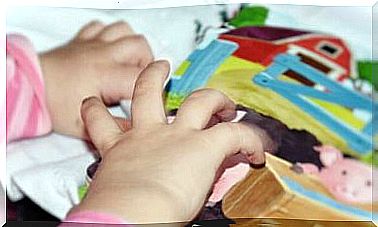Why Do We Often Feel Like Phonies?
Although it is not a recognized disease, the truth is that four out of ten people can suffer from the impostor syndrome or the fake syndrome. The phrase used in this syndrome is from the well-known British actress Kate Winslet, who received the Oscar in 2009.
Feeling fake syndrome. A widespread sociological phenomenon

This feeling can prevent some people from accepting and appreciating their achievements. Among other things because they are convinced that they did not have the capacity to deserve the compliments received.
Experts say that people with this syndrome refuse to acknowledge their own successes.
When these recognitions arrive, they tend to attribute them to chance, or to others overvaluing their actions.
The data on the phenomenon of believing themselves to be phonies

Statistically, four out of ten people have these symptoms at least once in their life.
In a sociological analysis, women tend to be more affected than men.
Also students may feel that one day his fraud, ie, they really did not deserve notes or obtained qualifications, although that is not true will be discovered.
An explanation for the phenomenon could be that, as we evolve in our personal or professional work, we are more aware of our limitations.
Self-esteem deficiencies
This syndrome of feeling “like a fake” can be related to problems of low self-esteem, personal insecurity and also low value in other times of our lives.
It often happens that people who suffer from this phenomenon have criticism during a stage in their life. Especially by their close relatives, such as their parents, older siblings, or also teachers.
It can also be due to an inaccurate interpretation of reality. Possible successes are attributed to external causes.
The consequence: insecurity

The problem with the phony syndrome is that this feeling always creates insecurity about what can happen. Those affected are never confident and may even lose control over their lives.
The person who does not trust their own abilities can fall into a vicious cycle of insecurity and blockage from which they cannot easily break free.
Another consequence is that people who suffer from this phenomenon may give up and occupy a secondary place in their environment. Despite having good capabilities.
It can also happen that the consequence is a high personal demand. These people will be overly rigid and perfectionists.
How to identify the syndrome?

Among the symptoms that the syndrome can manifest is mistrust in one’s own abilities and in the competencies for the development of tasks.
Another symptom is the fear of being exposed as a phony at some point. In addition, the person transmits insecurity in different areas (personal, work, social, etc.).
Treatments and solutions
Specialists agree that there are different degrees of severity of this phenomenon and it is not possible to speak of similar treatments.
However, there are some guidelines for dealing with symptoms.
- The first step is to consult with a professional and be sure that you have the syndrome. Thus ruling out other types of pathologies that could manifest themselves in a similar way.
- When the diagnosis ensures that the syndrome of believing oneself to be fakers is suffered, it is necessary to be well informed. Only the knowledge on the subject already diminishes the anxiety and the anguish.
- Engaging in dialogue with trusted people, talking about the subject, is a way of externalizing fear. Youth friends, partner and family may be the most appropriate support.
- On a personal note, don’t turn down compliments and compliments. They must be believed to have a well-founded basis, and they should not be dismissed.
It is necessary to think that it was not easy to achieve what we received praise for, and base said praise on the great effort we invested to achieve them, or to be worthy of new proposals.
Error is part of our lives and we must be aware of it. Therefore, we must review our list of qualities, skills, abilities and shortcomings.
We can prepare it with the help of well-known people who have total objectivity.








